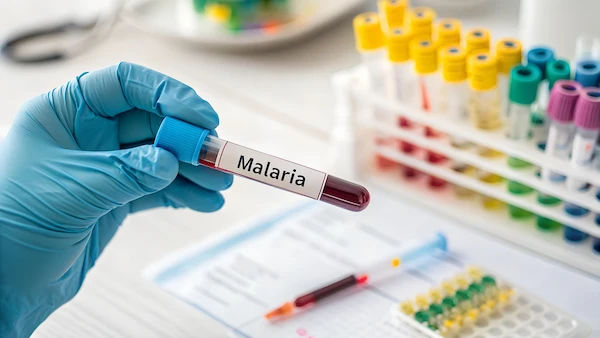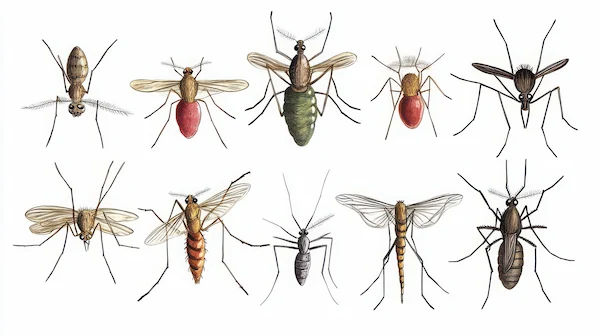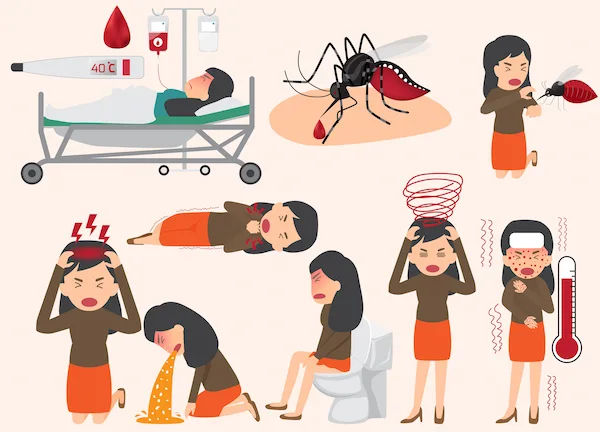Malaria Testing Methods Explained
Learn about the different malaria testing methods—RDT, blood smear, PCR, and more. Understand how they work, when to get tested, and what to expect during diagnosis.

Written by Dr. Mohammed Kamran
Reviewed by Dr. Dhankecha Mayank Dineshbhai MBBS
Last updated on 23rd Jul, 2025

Malaria Testing Methods Explained
Malaria is a serious illness caused by parasites that are transmitted through the bite of infected mosquitoes. If left untreated, it can lead to severe complications. Early and accurate diagnosis is crucial for effective treatment. If you or a loved one is experiencing symptoms like fever, chills, or fatigue, getting tested for malaria is important.
In this article, we’ll explain the different malaria testing methods in simple terms, so you can understand how they work and what to expect.
Why Is Malaria Testing Important?
Malaria symptoms can sometimes resemble those of other illnesses like the flu or dengue, making it hard to diagnose without proper testing. A correct diagnosis ensures:
- Timely treatment to prevent complications.
- Avoiding unnecessary medications if malaria is not the cause.
- Preventing the spread of the disease to others.
If you live in or have recently traveled to a malaria-prone area and experience symptoms, consult a doctor immediately.
Common Malaria Testing Methods
There are several ways to test for malaria, each with its own advantages. Let’s explore them:
1. Rapid Diagnostic Test (RDT)
- How it works: A small blood sample (usually from a finger prick) is placed on a test strip that detects malaria proteins (antigens). Results appear in 15–20 minutes.
- Pros: Quick, easy, and doesn’t require a lab.
- Cons: May not detect very low parasite levels.
2. Microscopic Blood Smear Test
- How it works: A blood sample is examined under a microscope to check for malaria parasites.
- Thick smear – Helps detect the presence of parasites.
- Thin smear – Identifies the type of malaria parasite.
- Pros: Highly accurate when done by an expert.
- Cons: Takes longer (a few hours) and requires a trained technician.
3. Polymerase Chain Reaction (PCR) Test
- How it works: Detects malaria parasite DNA in the blood.
- Pros: Very sensitive, can identify low parasite levels and specific malaria species.
- Cons: More expensive and takes longer (a few days).
4. Serology Test (Antibody Test)
- How it works: Checks for antibodies produced in response to malaria infection.
- Pros: Useful for past infections or research.
- Cons: Not ideal for diagnosing active malaria.
Which Test Should You Take?
- For quick results: Rapid Diagnostic Test (RDT) is a good first step.
- For confirmation: Microscopic blood smear is often used alongside RDT.
- For complex cases: PCR may be recommended if other tests are unclear.
Your doctor will decide the best test based on your symptoms, travel history, and test availability.
Consult a Top General Physician for More Health Benefits
What to Expect During a Malaria Test
1. Blood Sample Collection: A small amount of blood is taken, usually from a finger prick or vein.
2. Waiting for Results:
- RDT: Results in 15–20 minutes.
- Microscopic test: A few hours.
- PCR: A few days.
3. Next Steps:
- If positive, treatment will start immediately.
- If negative but symptoms persist, further testing may be needed.
Tips for Managing Malaria
If diagnosed with malaria:
- Take prescribed medications exactly as directed.
- Stay hydrated to help with fever and weakness.
- Rest to allow your body to recover.
- Use mosquito nets to prevent further bites and spreading infection.
Prevention Tips
- Use mosquito repellent (especially in malaria-prone areas).
- Wear long-sleeved clothing to reduce mosquito bites.
- Sleep under insecticide-treated nets.
- Avoid stagnant water where mosquitoes breed.
When to See a Doctor
Seek medical help immediately if you experience:
- High fever with chills
- Severe headache or muscle pain
- Fatigue, nausea, or vomiting
- Yellowing of skin (jaundice)
Early treatment can prevent severe complications like organ failure.
Book a Malaria Test with Apollo 24|7
If you suspect malaria, don’t wait! Apollo 24|7 offers:
- Quick and reliable malaria testing
- Expert consultation with doctors
- Home sample collection for convenience
Conclusion
Malaria is a treatable disease if detected early. Knowing the different testing methods helps you understand what to expect and ensures timely treatment. If you have symptoms or have been in a malaria-risk area, get tested without delay.
Consult a Top General Physician for More Health Benefits
Consult a Top General Physician for More Health Benefits

Dr. Syed Yaseen Ahmed
General Practitioner
7 Years • MBBS
Hyderabad
Apollo 24|7 Clinic, Hyderabad

Dr. Hrishikesh Shivakumar
General Physician/ Internal Medicine Specialist
9 Years • MBBS, MD
Bangalore
Apollo 24|7 Clinic - Karnataka, Bangalore

Dr. D Bhanu Prakash
General Practitioner
10 Years • MBBS, AFIH, Advanced certificate in critical care medicine, Fellowship in critical care medicine
Hyderabad
Apollo 24|7 Clinic, Hyderabad

Dr. Mohammed Huzef Ul Arifeen
General Practitioner
3 Years • MBBS
Hyderabad
Apollo 24|7 Clinic - Telangana, Hyderabad

Dr. Immanuel Raj
General Practitioner
8 Years • MBBS. MBA (HHSM)
Visakhapatnam
Apollo 24|7 Clinic - Andhra Pradesh, Visakhapatnam



